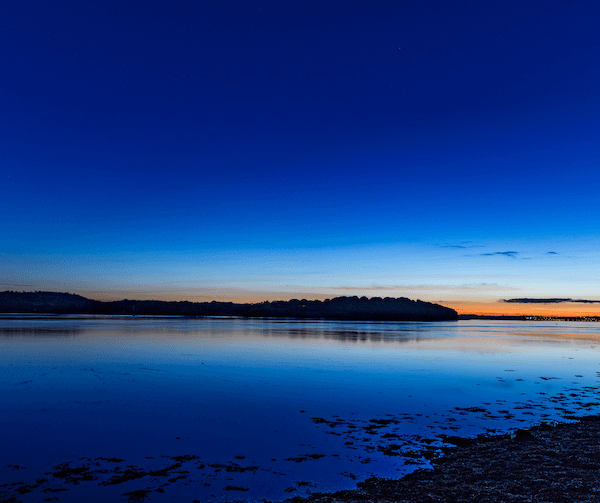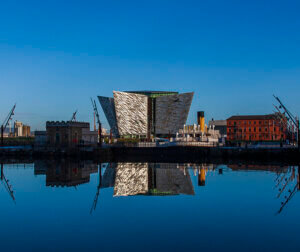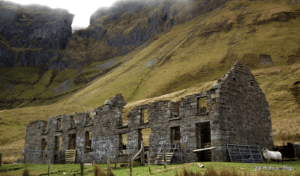Have you been watching Bloodlands? It’s the latest new crime thriller on BBC One that’s filmed in the beautiful Ards Peninsula of County Down.
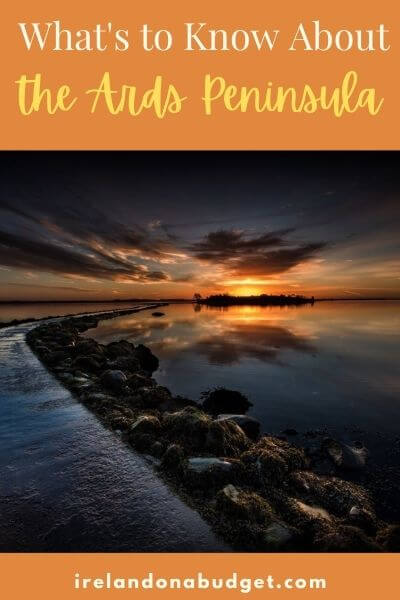 This post and page contain affiliate links and I may earn compensation when you click on the links at no additional cost to you.
This post and page contain affiliate links and I may earn compensation when you click on the links at no additional cost to you.
Anyone curious about the Troubles, the conflict that shaped life in Northern Ireland for approximately 30 years, will find this TV series gripping.
It centers around a cold case that re-appears when an assassin by the name of “Goliath” turns out to be on the loose.
The killer has a connection to Detective Tom Brannick, whose wife was one of his victims.
Apart from the show’s dark material, the stunning scenery that’s captured in this TV series most definitely sets it apart.
There are 4 episodes in total and if you're in the UK, you can obviously watch it for free.
If you're outside the UK, you'll need to subscribe to a streaming service like Acorn TV, a subscription video streaming service that includes shows from the U.K., Ireland, Canada, Australia, New Zealand, Spain, and Mexico.
It is available on a variety of devices including Amazon Fire TV, Apple TV, and Roku.
If you find yourself in Northern Ireland, don’t discount this special area of the country that includes a wildlife reserve, historic buildings, castles, ancient sites, and more.
Here's how to discover the Ards Peninsula.
Where Exactly is the Ards Peninsula?
The Ards Peninsula separates Strangford Lough from the North Channel of the Irish Sea. It is under an hour’s drive from Belfast, which makes the area perfect for a day trip.
The main towns and villages in this area include Donaghadee, Millisle, Newtownards, and Portaferry.
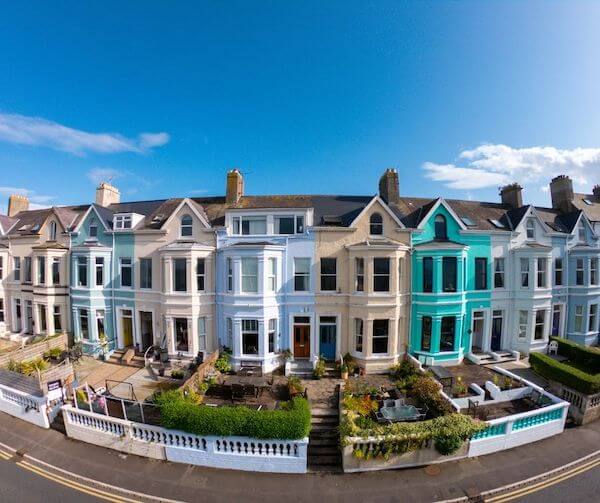
Bangor, another large town, is not technically part of the peninsula but is within the Borough of Ards.
It is a seaside resort and is part of the greater Belfast suburban area.
Here’s what you can expect to see in the Ards Peninsula region.
Strangford Lough
Strangford Lough is known as the largest inlet in the British Isles. Enclosed by the Ards Peninsula, it is linked to the Irish Sea by a narrow channel at its southern end.
The lough has abundant wildlife, which is why it is designated a Special Area of Conservation under the EU Habitats Directive.
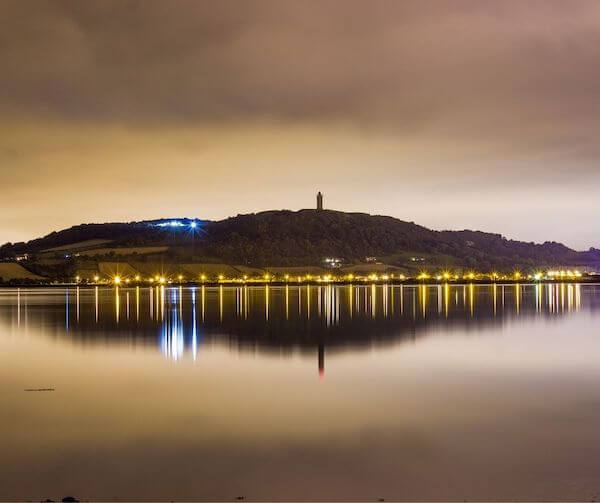
The area around Strangford Lough is rich in archaeological history, with evidence of Mesolithic shells found in the area, suggesting that the people who lived in this region took advantage of the rich supply of oysters, cockles, mussels, and other shellfish.
Burial sites have also been found here, including the Audleystown Court Cairn on the lake's southern shore as well as the Millen Bay Cairn.
In 432 A.D. St. Patrick is said to have journeyed the Strangford Narrows, and in the 6th century, a number of monastic sites sprung up around the area.
Today, the lough is a popular destination for anglers and it is even suitable for swimming.
Grab the Free Activities in Ireland List Now
Scrabo Tower
This 135-foot (41 meters) 19th-century tower is a prominent feature of the landscape near Newtownards and it is where you’ll get great views of the surrounding countryside, including Strangford Lough, the Mourne Mountains, even the Scottish coast.
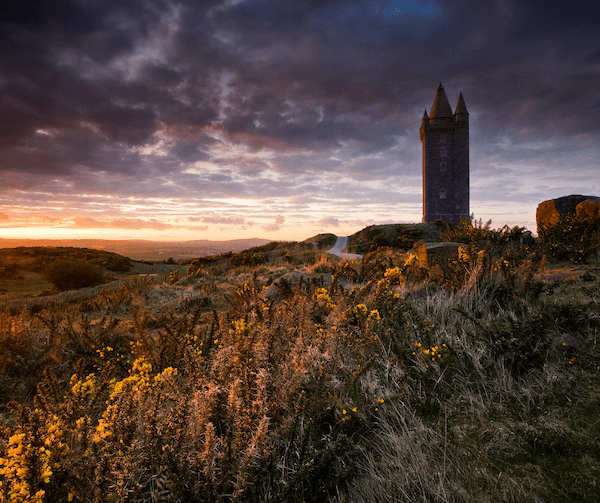
Located on Scrabo Hill, the tower was constructed on the site of a prehistoric hill fort and as a memorial to Charles Vane, the 3rd Marquess of Londonderry.
Charles Vane’s original name was Charles William Stewart but after marrying his second wife, Frances Anne Vane, a formal contract between them stipulated that he take her surname not retain his own.
In 1854, when Charles Vane died, his eldest son, the 4th Marquess of Londonderry, and Vane’s widow, Frances Anne, agreed to build something in his honor.
Exactly what they would build, however, was up for debate and since the two did not exactly get along, they each pursued their own projects, one of them being Scrabo Tower and another, a memorial in Durham, England.
After much discussion and debate about the tower’s design and eventual construction (at least three plans were scrapped), the foundation stone for the tower was laid in 1857.
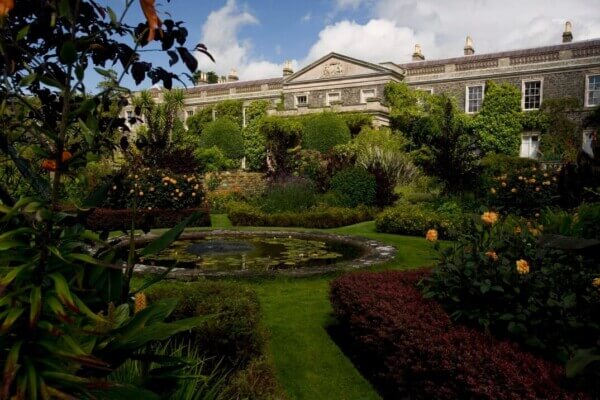
A framed picture of what the Scottish Baronial tower would look like after its construction can be seen at Mount Stewart, a National Trust property.
To get to the top for those amazing views, you’ll need to climb the tower’s 122 steps.
There is also a nice walk around the tower that’s worth doing. If you’re a golfer, the nearby 18-hole Scrabo Golf Course is an affordable pick and where you’ll get equally great views of the surrounding area.
The tower was one of several places used by Universal Pictures to film the movie “Dracula Untold.”
Mount Stewart
Situated on the eastern shore of Strangford Lough, this neo-classical house was once the home of the above-mentioned Marquesses of Londonderry, otherwise known as the Vane-Tempest-Stewart family.
The Stewarts acquired the estate in 1744 and expanded it over the years.

Most of the refurbishment and consequent enlargement of the house and estate was completed by Charles Vane, 3rd Marquess of Londonderry, mentioned above, who was married to Lady Frances Anne Vane-Tempest, a wealthy English heiress.
They reportedly spent £150,000 on the renovations.
Several generations of the family failed to live in the estate, however, and it fell into disrepair for a while. In 1977, a family member gave the house and most of its contents to the National Trust.
On a guided tour, you’ll discover over 2,500 historic artifacts, famous works of art, and family memorabilia.
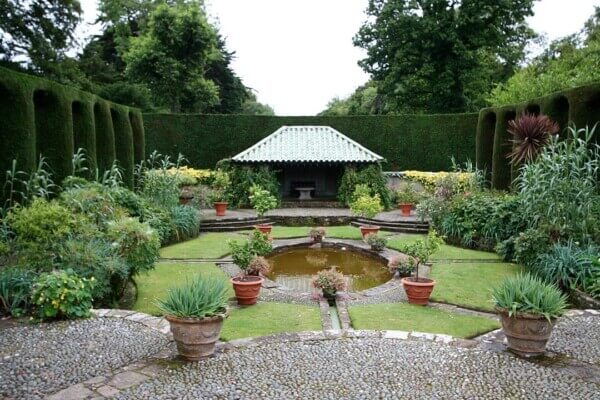
The house also includes a chapel with stained glass, along with 22 sets of chairs that were used during the Congress of Vienna, a political event that decided the fate of Europe after Napoleon’s surrender.
The landscaped gardens are divided into “rooms” by hedges and contain plants from all over the world.
“Tir na nÓg,” the family burial grounds, is located close to a nearby lake on the estate.
Other attractions include the 8-sided Temple of the Winds.
Tickets are £10 for adults 18 and above and £5 for children aged 3-17. They must be ordered online.
Kirkistown Castle
Before this 3-story tower house was built in 1622, a 9th-century round tower existed on the site.
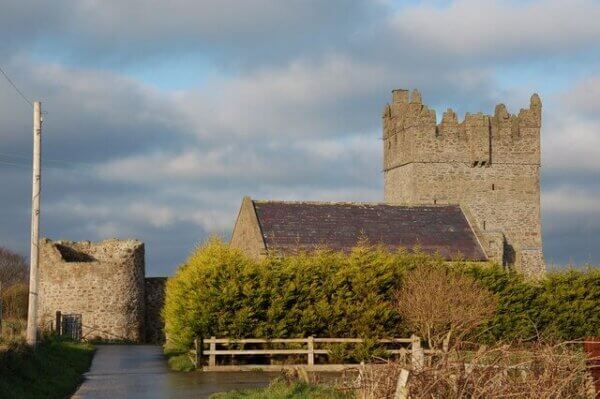
By 1731, Kirkistown Castle had been abandoned and it wasn’t until 1800 that the castle was remodeled in a Gothic style. Further work was completed in 1836.
The castle, which is currently managed by the Northern Ireland Environment Agency, is free to visit.
Portaferry Castle
Constructed by the Savage family, this 16th-century tower house, which overlooks Portaferry Harbour, has three stories, a spiral staircase, and an attic.
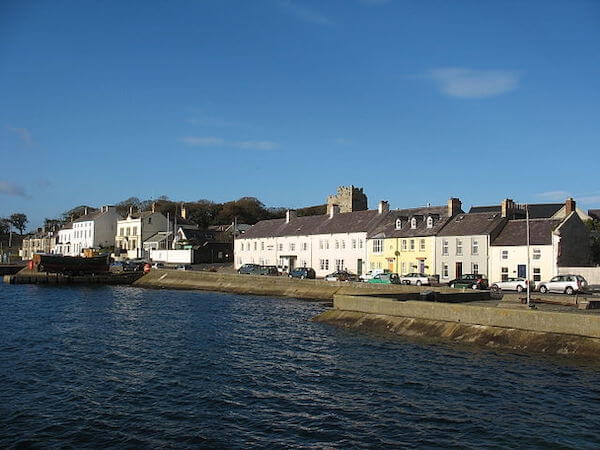
The castle once controlled the busy sea traffic that plied the Narrows. It is currently closed for repairs.
Grey Abbey
This Cistercian abbey was founded in 1193 by Affreca, the wife of the Norman knight John de Courcey, who was responsible for the construction of Carrickfergus Castle, 30 miles (48 km).
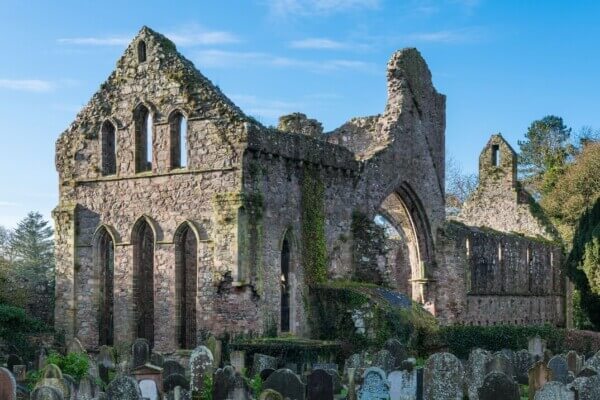
The abbey’s church, used until the 18th century, was the first in Ireland built in the Gothic style.
In the nearby visitor center, you’ll discover the full history of the abbey and the works of the monks there.
Don’t miss the herb garden, which contains medicinal plants once cultivated by the Grey Abbey religious community.
The abbey is free to visit.
The Giant’s Ring
This ancient “henge” monument within a sub-circular enclosure dates from about 2,700 B.C., making it older than the Egyptian pyramids.
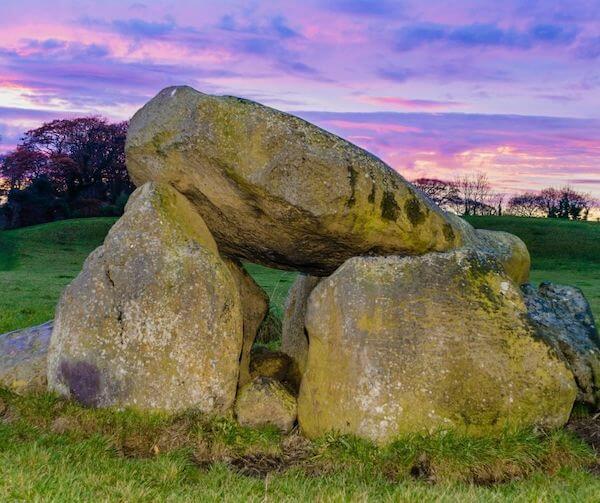
The impressive site measures 220 meters (220 yards) by 4 meters (13 feet).
The monument is surrounded by large stones that appear to be in their original positions. A passage tomb can be found close to the center.
Experts believe that it would have taken about 70,000 man-hours to construct the Giant’s Ring.
Echlinville Distillery
While you’re on your journey to discover the Ards Peninsula, be sure to visit the Echlinville Distillery, Northern Ireland’s first licensed whiskey distillery in over 125 years and reputedly, Ireland’s only “field-to-glass” distillery.

Using barley grown from the company’s own fields, the Echlinville Distillery is best known for its Dunville’s Irish Whiskey, Jawbox Gin, Echlinville Gin, and Bán Poitín.
Have you had the chance to discover the Ards Peninsula? If so, let me know in the comments below.

